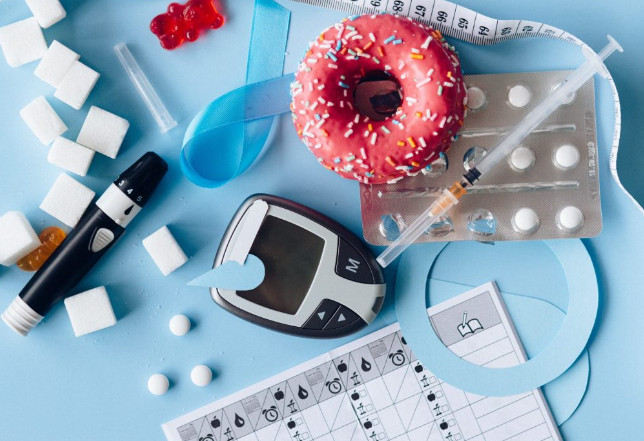Insulin resistance is a condition where cells in the body become resistant to the effects of insulin. This means that insulin is less effective at regulating glucose levels in the blood, which can lead to high blood sugar levels and other health problems. Insulin resistance is a key component of type 2 diabetes and can also be a precursor to other health issues such as metabolic syndrome.
Insulin Resistance: Causes, Treatments, and How it Effects Weight Loss :
There are several signs and symptoms that can indicate the presence of insulin resistance. These include:
High fasting blood sugar levels: Individuals with insulin resistance often have high blood sugar levels, even when they haven’t eaten anything for several hours.

Fatigue: Insulin resistance can lead to fatigue and a lack of energy, as cells in the body are unable to effectively use glucose for energy.
Increased hunger: Individuals with insulin resistance may experience increased hunger, as cells are unable to absorb glucose from the bloodstream and convert it into energy.
Weight gain: Insulin resistance can contribute to weight gain, as excess glucose in the bloodstream is converted into fat and stored in the body.
High blood pressure: Insulin resistance can contribute to high blood pressure, which can increase the risk of heart disease and other health problems.
Dark patches on the skin: Insulin resistance can lead to dark patches on the skin, particularly in areas such as the neck, armpits, and groin.
Polycystic ovary syndrome (PCOS): Insulin resistance is a common feature of PCOS, a condition that affects the ovaries and can cause menstrual irregularities, infertility, and other health issues.
Sleep apnea: Insulin resistance has been linked to sleep apnea, a condition where breathing is interrupted during sleep.
If you suspect that you may have insulin resistance, it is important to speak with your healthcare provider. They can perform tests to confirm a diagnosis and develop a treatment plan to help manage your symptoms and reduce your risk of developing complications. Lifestyle changes such as weight loss, exercise, and a healthy diet can also be effective in managing insulin resistance.
In addition to lifestyle changes, medications may also be prescribed to help manage insulin resistance. Metformin is a commonly prescribed medication that can help improve insulin sensitivity and lower blood sugar levels. Other medications, such as thiazolidinediones and glucagon-like peptide-1 (GLP-1) receptor agonists, may also be used to treat insulin resistance and type 2 diabetes.
It is important to note that insulin resistance can lead to serious health complications if left untreated. These complications can include type 2 diabetes, cardiovascular disease, kidney disease, and nerve damage. Therefore, it is important to take steps to manage insulin resistance and reduce the risk of developing these complications.
Preventing insulin resistance from occurring in the first place is also important. Maintaining a healthy weight, getting regular exercise, and eating a balanced diet can all help reduce the risk of developing insulin resistance. Additionally, avoiding tobacco use and limiting alcohol consumption can also be beneficial.
In conclusion, insulin resistance is a common condition that can lead to a range of health problems if left untreated. Recognizing the signs and symptoms of insulin resistance and taking steps to manage the condition can help reduce the risk of developing complications and improve overall health and well-being.


